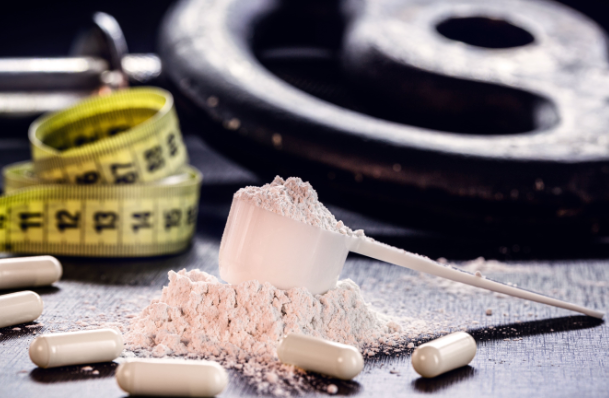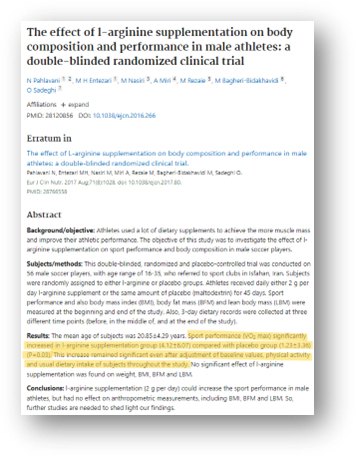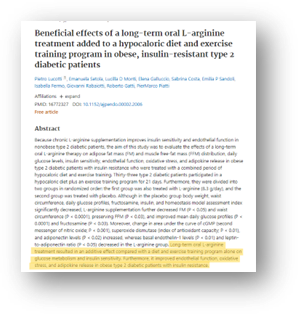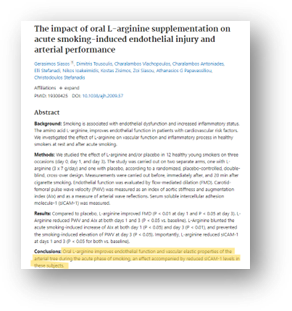Isn't it only for athletes to eat? Know Arginine Right
athletic performance2. Fat loss

Hello. I'm a pharmacist Jinny.
Recently, the importance of self-care has been emerging, and the number of people who enjoy fitness and exercise has increased significantly. At the same time, there's a growing interest in health boosters, which help you exercise more effectively.
There are several ingredients in Health Boosters. One of the most representative components is arginine (L-arginine). Arginine is one of the 20 amino acids that make up the body, and it is an important component involved in protein synthesis and metabolic activity in the body. When ingested, it increases exercise performance and helps to increase exercise effectiveness and perform high-intensity exercise.
In addition, arginine is responsible for excreting waste from the body to the outside, so it helps reduce muscle fatigue by removing various metabolites such as ammonia and lactic acid. As a result, it is also used as a medicine to treat hyperuricemia, which is caused by the accumulation of a toxic substance called uric acid. In addition, the health benefits of arginine, such as reducing body fat and improving blood vessel health, are numerous.
So, let's take a closer look at the benefits of taking arginine in this article.
Arginine stimulates the secretion of a substance called nitric oxide from vascular epithelial cells. Nitric oxide is a substance that improves blood flow by dilating blood vessels, increasing the amount of blood flowing through the vessels and helping to ensure a smooth supply of oxygen and nutrients to the body's skeletal muscles. As a result, taking arginine during exercise can help meet the maximum oxygen requirements of the muscles that have increased due to strenuous physical activity, increasing the duration of exercise and improving performance.
In 2017, a clinical trial was published in the European Journal of Clinical Nutrition, an SCI-level international journal, evaluating the effect of arginine intake on athletic performance. When 56 young athletes were given 2 grams of arginine daily for 45 days, their performance improved significantly [1].

"The arginine group significantly improved performance compared to the placebo group....This change was still the same in the arginine group when they adjusted for diet and physical activity."
Mitochondria are organs that use nutrients such as oxygen, carbohydrates, and fats to produce energy for the human body. If the function of these mitochondria decreases and fat metabolism becomes problematic, and the fat that enters the body is not broken down and turns into body fat and accumulates, the risk of obesity increases.
Arginine's nitric oxide activation effect can prevent the accumulation of body fat due to reduced mitochondrial function. This is because nitric oxide induces mitochondrial biosynthesis. In fact, a study published in the prestigious international journal Bioscience Biotechnology reported that a decrease in nitric oxide in the body increases triglycerides in the blood and reduces the oxidation of fatty acids, which in turn increases body fat, and that arginine supplementation may help reduce body fat [2].
In addition, a clinical trial published in the American Journal of Physiology-Endocrinology and Metabolism in 2006 showed that 33 obese middle-aged diabetics who took 8,300 grams of arginine daily for 12 weeks improved their overall health markers, including a reduction in total body fat mass and a thinner waist circumference compared to a placebo group with a conventional diet program [3].

"The arginine group had a greater reduction in waist circumference than the placebo group... Long-term arginine supplementation has been shown to be more effective than diet and exercise programs alone."
Healthy blood vessels are thin and elastic and squishy, but aged blood vessels have thick blood vessel walls and lack elasticity, making them rigid. As blood vessels age, the blood vessels do not expand properly, increasing the pressure on the blood vessel walls, which in turn leads to problems with blood circulation and increases the risk of various cardiovascular diseases such as stroke and myocardial infarction.
Vascular aging occurs when the function of vascular endothelial cells is impaired due to smoking and aging, resulting in a decrease in nitric oxide secretion. Arginine, as mentioned earlier, stimulates the production of nitric oxide, which dilates blood vessels and helps blood circulate smoothly. In fact, Korea's Ministry of Food and Drug Safety has also recognized the functionality of arginine, saying that it can "improve blood circulation by relaxing blood vessels."
In 2009, the American Journal of Hypertension published a clinical trial that evaluated the effects of arginine intake on vascular health. When 12 adults with vascular endothelial damage caused by smoking were given 3,000~7,000mg of arginine daily for up to 3 days, it was found that the function of vascular endothelial cells and the elasticity of blood vessels were significantly improved [4].

"Oral arginine intake improves arterial endothelial cell function and blood vessel elasticity caused by smoking"
Today, we've learned about the benefits of arginine. Arginine is only known as a health booster, but it offers more health benefits than you might think. As it is a representative health booster ingredient, it improves exercise performance and helps the biosynthesis of mitochondria, which are the body's energy factories, so that the metabolism runs smoothly, so that body fat does not accumulate easily, which is good for reducing body fat. In addition, it helps vascular health by restoring the function of vascular endothelial cells and improving the elasticity of blood vessels. Therefore, it is more than just a health booster. However, Excessive intake of arginine can cause low blood pressure and may cause gastrointestinal symptoms such as diarrhea and abdominal pain, so it is not recommended to take a high dose of more than 6,000 mg in the first place.
If you are interested in improving your athletic performance or reducing body fat, you may want to try taking an ingredient called "L-aspartic acid" along with arginine. L-aspartic acid is also one of the amino acids that make up proteins and is involved in the synthesis of arginine in the body. A 2005 study showed that supplementation with arginine and L-aspartic acid for more than three weeks increased fat oxidation, decreased blood lactate levels, oxygen expenditure, and associated heart rate and respiration, and had a positive effect on exercise sustainment [5].
I hope you have a healthy day in body and mind. It was Jinny.
[1] Pahlavani, N., Entezari, M. H., Nasiri, M., Miri, A., Rezaie, M., Bagheri-Bidakhavidi, M., & Sadeghi, O. (2017). The effect of l-arginine supplementation on body composition and performance in male athletes: a double-blinded randomized clinical trial. European journal of clinical nutrition, 71(4), 544–548.
[2] Khedara, A., Goto, T., Morishima, M., Kayashita, J., & Kato, N. (1999). Elevated body fat in rats by the dietary nitric oxide synthase inhibitor, L-N omega nitroarginine. Bioscience, biotechnology, and biochemistry, 63(4), 698–702.
[3] Lucotti, P., Setola, E., Monti, L. D., Galluccio, E., Costa, S., Sandoli, E. P., Fermo, I., Rabaiotti, G., Gatti, R., & Piatti, P. (2006). Beneficial effects of a long-term oral L-arginine treatment added to a hypocaloric diet and exercise training program in obese, insulin-resistant type 2 diabetic patients. American journal of physiology. Endocrinology and metabolism, 291(5), E906–E912.
[4] Siasos, G., Tousoulis, D., Vlachopoulos, C., Antoniades, C., Stefanadi, E., Ioakeimidis, N., Zisimos, K., Siasou, Z., Papavassiliou, A. G., & Stefanadis, C. (2009). The impact of oral L-arginine supplementation on acute smoking-induced endothelial injury and arterial performance. American journal of hypertension, 22(6), 586–592.
[5 ]Burtscher, M., Brunner, F., Faulhaber, M., Hotter, B., & Likar, R. (2005). The prolonged intake of L-arginine-L-aspartate reduces blood lactate accumulation and oxygen consumption during submaximal exercise. Journal of sports science & medicine, 4(3), 314–322.




![[CoQ10 Efficacy] 3 Effects of CoQ10 to Prevent Free Radicals, the Main Cause of Aging](http://esther-mall.com/cdn/shop/articles/2_c6871298-563e-4f40-8006-7b0f46147d63.jpg?v=1733983067&width=480)
Comments (0)
There are no comments for this article. Be the first one to leave a message!